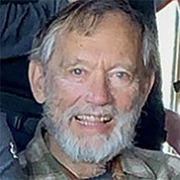A .gov website belongs to an official government organization in the United States.
A lock () or https:// means you've safely connected to the .gov website. Share sensitive information only on official, secure websites.

Balloon-borne in situ stratospheric aerosol measurements completed since 2019, from the tropical tropopause layer to the austral mid stratosphere, will be discussed as they relate to the following science questions.
Is our understanding of the source of new particles in the stratosphere complete? Does a new particle layer form in austral polar fall? What is the meteoric input to polar stratospheric aerosol? What are the characteristics of austral early onset PSCs? How did Hunga-Tonga impact the austral polar vortex in 2023? What is the source of ubiquitous large particles observed in the tropical tropopause layer? Have there been any surprises? These questions, along with some basics, are options to pursue at the audience’s discretion. Not all topics can be covered in the time allowed.
Dr. Terry Deshler is a professor emeritus from the University of Wyoming where he served on the faculty for 23 years, retiring in 2014. During that time his research interests were on the impact of atmospheric aerosol on chemical, radiative, and hydrologic atmospheric processes, including polar ozone loss, polar stratospheric clouds, mid latitude stratospheric aerosol, the stratospheric effects of major volcanic eruptions, and the impact of winter orographic storms on snowpack. In 2015 he suggested to Lars Kalnajs, at CU Boulder's Laboratory for Atmospheric and Space Physics (LASP), that in situ stratospheric aerosol measurements were still of interest to the research community. Since then Lars and he have been funded from NSF and NASA to continue these balloon-borne measurements in the mid latitudes, tropics and polar regions, leading to Terry's position as a part-time scientist at LASP since 2016.
ALL Seminar attendees agree not to cite, quote, copy, or distribute material presented without the explicit written consent of the seminar presenter. Any opinions expressed in this seminar are those of the speaker alone and do not necessarily reflect the opinions of NOAA or CSL.